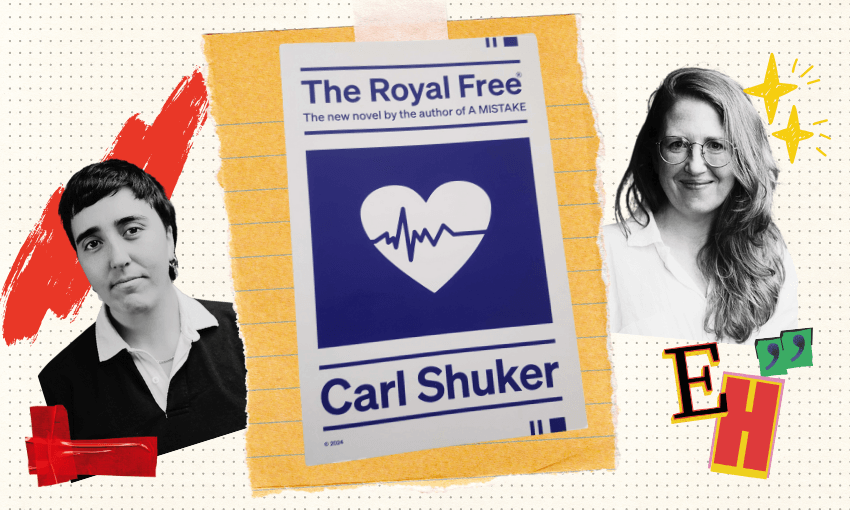A private petition is being delivered to the steps of
parliament at lunchtime today – calling for the government
to green-light a treatment, readily available overseas,
which is delivering remarkable improvements to the health of
many patients with multiple sclerosis (MS)
worldwide.
The petition is the work of patients and
their families, frustrated by Ministry of Health and DHB
inaction in failing to approve and fund Autologous
Haematopoietic Stem Cell Transplantation (aHSCT) – a
petition strongly backed by Multiple Sclerosis New Zealand
(MSNZ).
MSNZ President Neil Woodhams says they’ve
been lobbying the Ministry of Health for the past five years
to approve aHSCT. Yet, despite overwhelming evidence and
high-level clinical support for its use, patients in
Aotearoa New Zealand with active relapsing MS are still
being denied access to this proven, cost-effective
treatment.
“We are fed up waiting for aHSCT to be
made available here,” says Neil
Woodhams.
“Approving this safe, widely-used and
readily-available treatment for clinically suitable New
Zealand patients is a no-brainer. aHSCT can deliver solid
and often remarkable results for selected patients with
active relapsing MS, even some with quite advanced
disease.”
“We are calling on Health New Zealand to
prioritise funding for a ‘centre of excellence’ for
aHSCT in Aotearoa, where appropriately screened MS patients
can access this therapy and have their progress followed
through participation in ongoing observational
trials.”
Readily available in Australia and the UK
for selected patients exhibiting early and aggressive
disease, aHSCT is an intense chemotherapy treatment which
aims to wipe out harmful immune cells and rebuild the immune
system. Already widely used in New Zealand as a treatment
for blood cancer, aHSCT doesn’t reverse MS damage but can
restart the immune response and halt further disease
progression.
MSNZ began advocating for the
introduction of aHSCT in 2017, including commissioning an
independent report which it presented to the Ministry of
Health, and bringing overseas experts here to discuss the
positive role aHSCT treatment can play. A Haematology and
Neurology Special Interests Group, compromising the
country’s leading experts, also undertook its own
investigative work, expressing support for the use of aHSCT
for those with highly active MS who are not responding to
existing drug treatments.
Added to this, an
MSNZ-initiated OIA request to the Auckland DHB last year
produced paperwork from meetings held by expert clinicians
from the Northern Region Clinical Practice Committee. They
showed overwhelming support for the use of aHSCT in selected
patients with relapsing remitting MS, with clinicians
stating they had the capability to deliver the treatment but
not the capacity.
“The Committee commissioned its
own health economists, who showed clear cost benefits for
the treatment. It states the cost of aHSCT treatment as
$50,000, with the payback in health dollars being less than
two years when the estimated cost of the average patient’s
MS drugs are included, with even greater savings down the
track. At a time therefore when our health system is under
huge cost pressures it makes no sense that this cheaper,
alternative treatment isn’t made immediately available,”
says Woodhams.
MSNZ says the Minister of Health
advised last year that while the ministry’s Haematology
Work Group had considered the aHSCT issue, there were still
factors to be resolved, including estimating the volumes of
treatment required, and commissioning and implementing the
treatment amongst DHBs. The Minister also said the Health
and Disability System Review would be focussing on the
introduction of new technologies and treatments. However,
MSNZ says its disappointed the Ministry has not engaged with
it as part of that system review and that little more has
been done since 2019.
Due to its unavailability here,
over 100 New Zealanders have self-funded their own aHSCT in
private clinics overseas, most commonly Russia, Mexico,
Singapore, and India.
“This has created a sense of
desperation for some Kiwi MS patients, having to find or
fundraise around $70-$120,000 to pay for overseas treatment
while the clock is ticking and their disease threatening to
progress beyond the stage where aHSCT could potentially help
them. Added to that has been the added stress and fear of
such medically vulnerable patients having to take on
international travel during COVID-19.”
“It’s
frankly inhumane. The government needs to just get a move
on, listen to the overwhelming advice of its clinical
experts and fund aHSCT here as soon as possible, “says
Woodhams.
© Scoop Media




















Discussion about this post